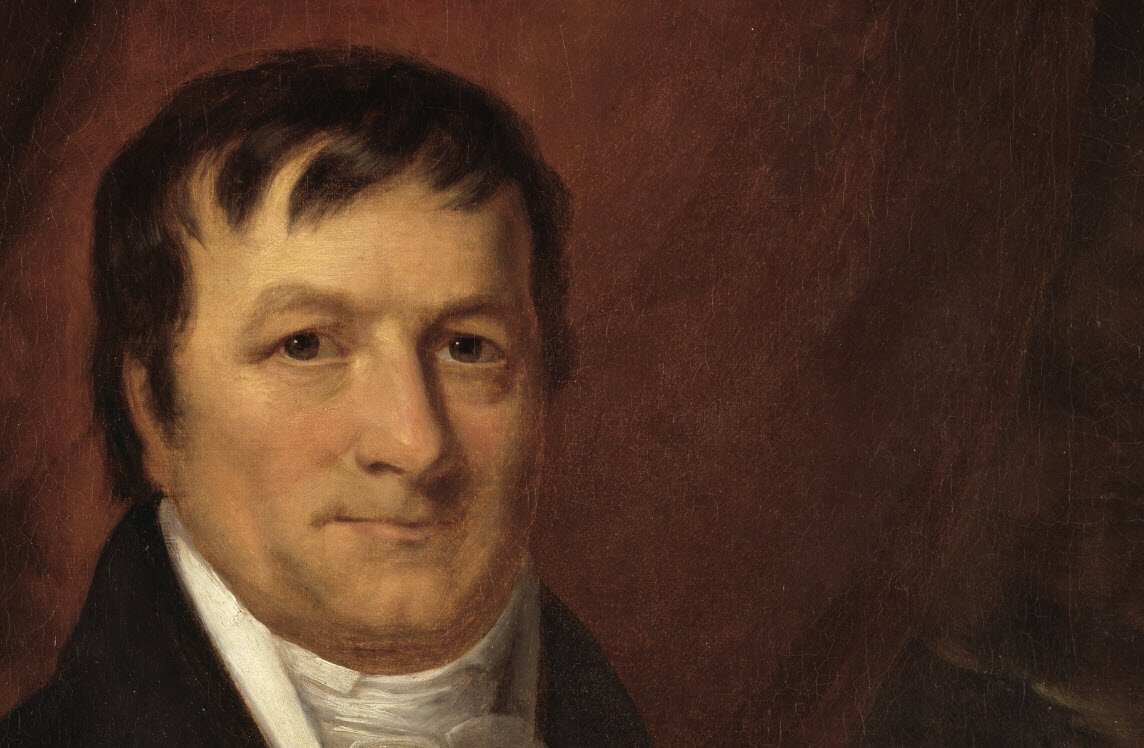Discover the fascinating story of John Jacob Astor, the German-born American businessman who built a fur trading empire and became the first multimillionaire in the United States. Learn about his early life, his successful career in the fur trade and real estate, his philanthropy, and his enduring legacy.

Source: wikipedia.org
John Jacob Astor; (1763-1848), American fur merchant and capitalist who cornered the nation’s fur trade. He created the first American trust and built what was said to be the largest American fortune of his day.
He was born in the village of Waldorf, near Heidelberg, Germany, on July 17, 1763. His father was a butcher. Astor left Germany at 16 to work in his brother’s piano and flute factory in London. In 1783 he emigrated to the United States to be the agent of his brother’s firm, Astor and Broadwood, in New York City.
Two years later, Astor traveled up the Hudson River to trade for furs. By the mid-1790’s he was one of the leading fur merchants in the United States. Through friendship with a London official of the East India Company, Astor obtained a charter in 1796 authorizing him to trade freely in any port monopolized by that company. The charter opened the way for Astor’s commercial transactions with China, then the world’s richest fur market. He founded his own shipping line to carry his furs to Canton, and to St. Petersburg, London, and New York.
Appointed executive agent in the Northwest by President Jefferson, Astor organized the American Fur Company in 1808 to challenge the North West and Hudson’s Bay companies, which controlled the North American fur trade. He also added subsidiaries to operate in different parts of the country. In 1811, while organizing the Pacific Fur Company to obtain control over the flourishing fur trade with the Orient, he founded Astoria, at the mouth of the Columbia River, the first permanent American settlement in the Pacific North West. In 1822 pressure from private traders led by Astor and his American Fur Company induced Congress to abandon the government’s 26-year-old program of maintaining fur trading posts. By 1827 he had won a virtual monopoly by buying out rivals.
Astor was adept at using political pressure and friendships with presidents. His friendship with Jefferson enabled him to be appointed executive agent in the Northwest. Also, Jefferson permitted an Astor ship to sail for Canton while the embargo of 1807 was in force. This venture provided a profit of over $200,000. Astor, along with Stephen Girard and David Parish, helped finance the War of 1812 by taking over the unsubscribed part of a government loan and selling it to the public at a profit. Astor, Girard, and Parish were instrumental in obtaining passage of the congressional act establishing the Second Bank of the United States, which strengthened the nation’s financial condition. They enriched themselves as large holders of government securities, the price of which increased greatly.
In 1834, Astor withdrew from the fur trade to deal in New York City real estate and other investments. He built Astor House, the forerunner of a series of family hotels. At his death in New York on March 29, 1848, he left a fortune of over $20 million. His will, among other bequests, benefited New York libraries. His contemporaries were almost unanimous in viewing him as selfish, grasping, and ruthless, a “self-invented money-making machine.”
Facts About John Jacob Astor
Here are some interesting facts about John Jacob Astor:
- John Jacob Astor was born in Walldorf, Germany in 1763 and immigrated to the United States in 1784.
- He started as a fur trader and built a fur trading empire that extended across North America.
- Astor was one of the wealthiest people in America in the early 19th century and his net worth at the time of his death in 1848 was estimated at $20 million.
- He was the first multimillionaire in the United States.
- Astor invested heavily in New York City real estate, including the famous Astor Place Opera House and the original Waldorf Astoria Hotel.
- He founded the American Fur Company in 1808, which became the largest fur trading company in the United States.
- Astor was a philanthropist and donated to various causes, including the New York Public Library and the Astor Orphan Asylum.
- He was also involved in politics and served as a state senator in New York.
- Astor was a passenger on the ill-fated Titanic, but canceled his reservation and avoided the disaster.
Astor died in 1848 at the age of 84 and is buried in Trinity Church Cemetery in New York City.